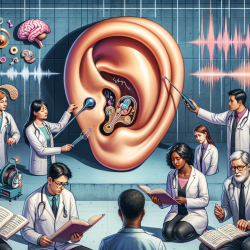Understanding Indiana's Indicator 11: A Guide for Schools
In the realm of special education, compliance with state guidelines is crucial for ensuring that every child receives the appropriate support and resources. Indiana's Indicator 11 serves as a pivotal measure for evaluating how efficiently local education agencies (LEAs) are conducting initial evaluations for special education services. This blog aims to demystify Indicator 11 and offer insights into its monitoring and compliance guidelines.
What is Indicator 11?
Indicator 11 measures the percentage of children who are evaluated for special education services within a specified timeline. Specifically, it tracks the time from when parental consent is received to when the evaluation is completed. Generally, evaluations must be completed within 50 instructional days. However, if a student has participated in Response to Intervention (RtI) or if an expedited evaluation is required due to disciplinary procedures, the timeline is reduced to 20 instructional days.
Data Collection and Monitoring Cycle
The Indiana Department of Education (IDOE) collects data on initial evaluations at three key points each year:
- July Data Collection: This is the official review period using the Evaluation Roster (EV Roster) in Data Exchange (DEX).
- Fall Audit: Conducted in November or December, focusing on evaluations from the current school year.
- Spring Audit: Conducted in May, covering evaluations from January to April.
LEAs found noncompliant during these periods must undergo further audits and are classified based on the duration of noncompliance: First Year Finding, Continued Finding, or Longstanding Finding.
Compliance Guidelines
To maintain compliance, LEAs must adhere to the following:
- Complete evaluations within the specified timelines.
- Accurately record all evaluation timelines in the EV Roster.
- Engage in technical assistance and training opportunities provided by IDOE.
Noncompliance must be corrected within a year, and LEAs are expected to meet 100% compliance as per state targets.
Technical Assistance
For LEAs requiring additional support, IDOE offers various levels of technical assistance:
- Universal Support: Includes resources like the IEP TA Center and statewide conferences.
- Targeted Support: Accessible through the IDOE Technical Assistance Request Form.
- Intensive Support: For LEAs with more significant needs, also available via the Technical Assistance Request Form.
Conclusion
Indicator 11 is a vital component of ensuring timely and appropriate evaluations for students in need of special education services. By understanding and adhering to the compliance guidelines, LEAs can better serve their students and meet state targets. For more detailed information, please follow this link.










